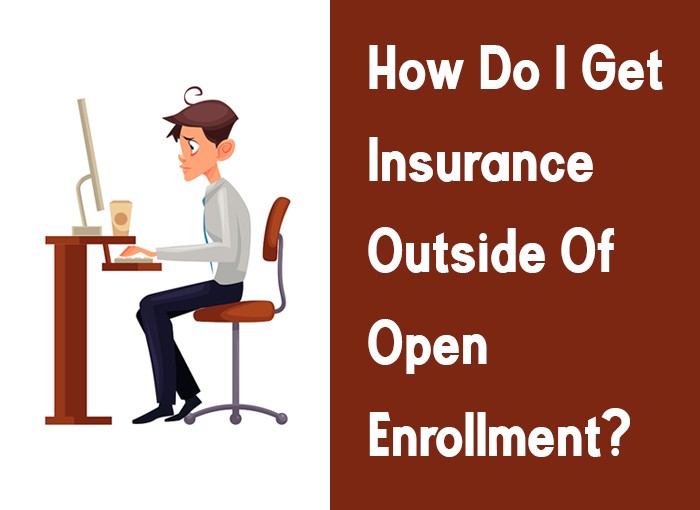HOW DO I GET INSURANCE OUTSIDE OF OPEN ENROLLMENT?
Let’s talk about open enrollment and the way it could affect you. Well, open enrollment is the conventional window for acquiring medical health insurance. You can access insurance through numerous approaches in which you may be covered. This weblog will explore the numerous ways to obtain medical health insurance outside of the open enrollment length, inclusive of qualifying life occasions, special enrollment periods, and opportunity coverage options.
Qualifying Life Events
Some of the most usual qualifying lifestyle activities consist of:
- Getting married or divorced: Changes in your marital repute can cause a special enrollment length.
- Having a baby or adopting an infant: Adding a new base for your circle of relatives is a qualifying life event.
- Losing Job-Based Coverage: If you lose your health insurance due to activity termination, you qualify for SEP.
- Moving to a New State or Zip Code: Relocation regularly changes your eligibility for precise plans.
- Turning 26: If you age out of a parent’s health plan, you can sign up in your personal.
Medicaid and CHIP: Year-Round Options
Eligibility
Eligibility varies through state however often relies upon earnings, family length, and different factors. For instance:
- A single person with incomes beneath $20, 120 annually may qualify for Medicaid.
- Children from low-earnings households may also qualify for CHIP irrespective of parental profits.
Benefits
Medicaid and CHIP normally cover essential services, together with healthcare practitioner visits, tests conducted in health centers, and prescription drugs. For the ones eligible, those programs may be a lifesaver.
Short-Term Health Insurance Plans
Pros and Cons
| Pros: | Cons: |
| Quick approval system. | Limited insurance for pre-current situations. |
| Affordable charges. | Not a substitute for complete insurance. |
Who Should Consider These Plans?
Short-term plans are fine for:
- Individuals between jobs.
- Recent university graduates.
- Those watching for new coverage to start.
COBRA Coverage
How It Works
Under COBRA, you pay the full premium price, along with the amount formerly included by your employer. While this may be high-priced, it ensures continuity of care.
Is COBRA Right for You?
COBRA is good for those who:
- help bridge the health insurance gap until you qualify for another health plan.
- Prefer to keep their employer-sponsored health plan.
Employer-Sponsored Plans
Mid-Year Enrollment
Some employers permit mid-year enrollment for specific reasons, which include:
- Changes to your household.
- A partner dropping their job-primarily based insurance.
Temporary Employment Opportunities
If you’re between jobs, seeking temporary or freelance work may also provide access to company-subsidized fitness plans.
Affordable Care Act (ACA) Marketplace Options
Checking for SEP Eligibility
If you’ve experienced a qualifying life event, the ACA marketplace is your first forestall. Plans presented here cover crucial health benefits and often include subsidies for eligible people.
Catastrophic Plans
For those below 30 or experiencing monetary hardship, catastrophic plans offer low-cost coverage for emergencies. Keep in mind:
- High deductibles apply.
- Coverage is limited to worst-case scenarios.
Exploring Free or Low-Cost Clinics
What Are They?
Community health clinics regularly offer low-priced hospital treatment on a sliding charge scale primarily based on profits. While they don’t replace insurance, they are able to help bridge the distance.
Services Offered
- Routine test-ups.
- Vaccinations.
- Basic prescription assistance.
Proactive Planning for Future Coverage
Avoid Gaps in Coverage
To limit the hazard of being uninsured:
- Mark open enrollment dates for your calendar.
- Assess your insurance wishes annually.
Building an Emergency Fund
Setting aside finances can assist cover medical charges throughout uninsured periods, decreasing financial stress.
In that case, they do not have to necessarily pay for next year’s open enrollment to buy the same coverage. Please note that you can not purchase any insurance policy until you are qualified for a special enrollment plan. We hope this article helped you to get a health insurance policy when enrollment has ended.
Look out for the option if you still qualify for special enrollment.
Some life events make you eligible for the special enrollment period. You can qualify for special enrollment if you have lost coverage due to any reason like not paying the premiums at the right time crossing the age limit of the parent’s plan or getting separated from your husband. Other qualifying events include: changes in the family death of a spouse or parents, moving to different countries or housing, eligibility for Medicaid policy, becoming a citizen of the US, etc.
These plans provide flexibility for short periods and get approved on the next day. With these plans, you can cancel short-term coverage without paying a penalty before starting medical insurance. Please note that these short insurance plans provide insurance coverage but are not as comprehensive as market healthcare policies.
Conclusion
While missing open enrollment would possibly appear like a hurdle, there are several approaches to steady coverage outside of this. From qualifying life events and Medicaid to short-term plans and COBRA, the alternatives are diverse. By knowing your needs and acting speedy, you may discover a solution that suits your scenario. Remember, medical insurance isn’t always just a financial protection net; it’s a cornerstone of your well-being. Stay knowledgeable and organized to make the first-class choice for your health.



